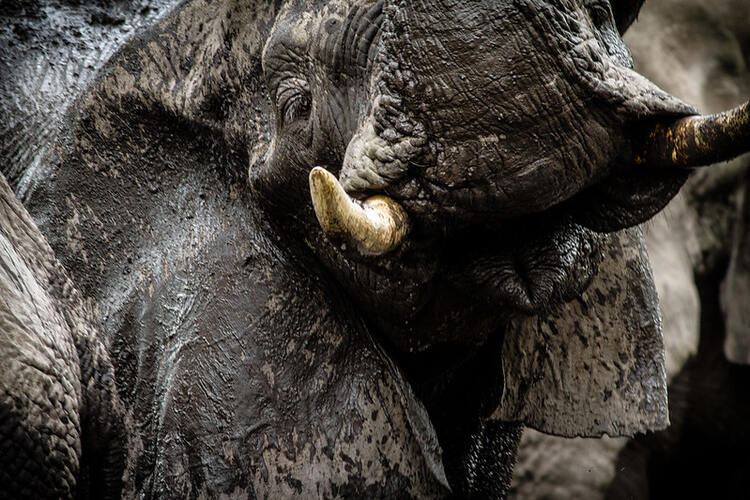
It’s no secret that elephants are highly intelligent creatures, but new research suggests that elephants might even call each other by name
By
Elephants, we already know, are among the most intelligent of all creatures. As the expression, ‘An elephant never forgets’ indicates, the world’s largest land animal has an incredible capacity for memory, and this is because an elephant’s cerebral cortex (the area of the brain associated with memory) is larger and denser than that of humans. In times of drought, the matriarch (elderly female head of the pack) can often remember exactly where to find water even if she hasn’t visited that water source for years. And, it’s also thought elephants can remember the ‘faces’ of other elephants even if they haven’t seen them in decades.
But now, new research has revealed that elephants might actually address one and other with individually specific name-like calls. The research, which was published this week in the journal Nature Ecology and Evolution and focused on groups of elephants – totalling around a hundred individuals – in Kenya’s Amboseli National Park and Samburu National Reserve, discovered that sometimes, when an elephant makes a vocalization sound to a group of elephants, all of them respond. But that at other times when an elephant makes a similar call to the group, only a single individual responds.
To work this out, the team used machine learning to demonstrate that the receiver of a call could be predicted from the call’s acoustic structure, regardless of how similar the call was to the receiver’s vocalizations. The team also played audio recordings of elephant vocalisations to a group to test how they would respond to a call apparently addressed to them as well as to a call apparently addressed toa different elephant. It quickly became clear that when a vocalisation was aimed at a specific elephant that that elephant responded more strongly than if the vocalisation was made to a different group of the herd as a whole.
While dolphins and parrots address other members of their group by imitating the calls of the individual that they’re trying to address with elephants it appears to be different, and that elephants use specific vocalisations to address specific elephants.
According to the lead author of the research, Mickey Pardo, a behavioural ecologist from Cornell University, elephants ‘Address one another with something like a name. Certainly, in order to address one another in this way, elephants must learn to associate particular sounds with particular individuals and then use those sounds to get the attention of the individual in question, which requires sophisticated learning ability and understanding of social relationships,’ Pardo said. ‘The fact that elephants address one another as individuals highlights the importance of social bonds – and specifically, maintaining many different social bonds – for these animals’.
Study co-author George Wittemyer, chair of the scientific board of the conservation group Save the Elephants, said of the research: ‘I think this work highlights how intelligent and interesting elephants are, and I hope that engenders greater interest in their conservation and protection’.
Related articles:




